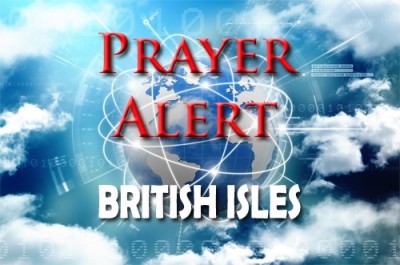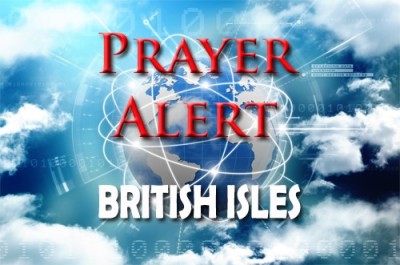The International Criminal Court (ICC) has sentenced former Janjaweed commander Ali Muhammad Ali Abd-Al-Rahman, better known as Ali Kushayb, to twenty years in prison for war crimes and crimes against humanity committed in Darfur in 2003–04. Convicted on 27 charges, he is the first person tried by the ICC for atrocities linked to the Darfur conflict. Judges found that he both ordered and personally participated in attacks aimed at ‘wiping out’ non-Arab communities, including killings, mass displacement and widespread sexual violence. Survivors testified to villages being burned and families destroyed. The ruling comes as Sudan faces renewed conflict, with the Rapid Support Forces (successors to the Janjaweed) accused of carrying out similar abuses today. While the ICC hopes the sentence will offer justice and deterrence, experts question its immediate impact, noting that millions of survivors remain displaced and key figures, including former president Omar al-Bashir, are still wanted. The verdict nevertheless stands as a significant acknowledgment of long-ignored suffering.
“Together for His Glory: Advancing Prayer in 2026”
As we come to the close of another year of God’s extraordinary grace, I would like to thank you from the bottom of my heart for your faithful partnership in prayer and for your steadfast encouragement. I’d also like to update you on some recent highlights and invite you to consider sowing into the IPC vision.
Your partnership truly strengthens us all to keep pursuing the vision God has entrusted to International Prayer Connect - to help raise up 1 billion people to walk with God in prayer! It is our desire to exalt Jesus, catalyzing united prayer that will result in the transformation of peoples, cities, and nations.
2025 - A Year of Expansion and Connection
 Because of your prayers and support, IPC has experienced one of our most fruitful years ever. We have seen a supernatural widening of the global prayer family and a deepening of unity across nations, denominations, and generations.
Because of your prayers and support, IPC has experienced one of our most fruitful years ever. We have seen a supernatural widening of the global prayer family and a deepening of unity across nations, denominations, and generations.
Here are a few highlights:
1. Building Global Prayer Infrastructure
- Established 24 regional prayer councils – led by leaders in those regions.
- Started raising up national prayer leaders in 150 nations, including new partnerships in China and North India.
2. Global United Prayer Initiatives
- Facilitated four Global Days of Prayer with more than 100 million people joining in united prayer.
- Focused prayer for Buddhist, Muslim, Hindu, and Jewish People to have an authentic encounter with Jesus Christ by the power and presence of the Holy Spirit.
 3. Expanding 24/7 Prayer
3. Expanding 24/7 Prayer
- Helped launch 55 new 24/7 Houses of Prayer in 10 nations.
- Completed five years of continuous 24/7 prayer in the Global Family Prayer Room - day and night, unbroken.
- Hosted key prayer gatherings in Indonesia, Thailand, South Africa, Finland and Kazakhstan.
4. Discipleship and Prayer Resources
- Launched a 365-day prayer plan on the YouVersion Bible App to help believers pray daily for workers in 110 global cities.
- Jason finished a Prayer Course called 7 Keys to Effective Prayer and published two books, Pray the Word and Foundation of the Foundations – Praying together for Israel
All of this is part of our mission to:
- Pray: around the throne, around the clock, and around the globe
- Inform: believers on strategic prayer needs
- Equip: people to pray effectively
- Connect: people to pray together across nations, denominations, and generations
This work is possible because people like you stand with us in prayer and generosity.
Two Testimonies of God’s Power
1. A Global Underground House Church Movement
For the past five years, we have prayed consistently with leaders from one of the largest underground church networks in the world. Since 2021, they have grown by 22% per year. Today, they represent 8.4 million house churches with 154 million followers of Jesus. This is the fruit of united prayer. God is moving behind the scenes in places where the Gospel is most costly - this year, 1,905 believers from this movement were martyred for their Gospel witness.
2. A Move of God Among Former Muslims
During this year’s Global Day of Prayer for the Muslim World, the Holy Spirit moved mightily in a region of the Middle East. At a gathering of tribal leaders and refugee families, one leader boldly proclaimed that Jesus Christ - the
Prince of Peace - is the only way to peace in the Middle East. After hours of questions and sharing the Gospel, 8,026 former Muslims became followers of Jesus.
They renounced Islam, committed their lives to Scripture, and today they are in house churches being discipled to reach their families and tribes for Christ.
One man named Abdul received the same dream four nights in a row: women and children carrying light through his village. On the fourth night, he waited outside—and saw them coming.
“We have come with a message from God,” they told him, opening a Bible he had never seen before. “Jesus the Messiah sent us to find someone named Abdul.”
Now, 18 households in his village follow Christ, and a new house church has been planted in a nation with few known believers.
A Call to Resource IPC's Vision for 2026
 As we look toward 2026, the opportunities before us are extraordinary. Across the world, God is opening doors for united, strategic, Scripture-anchored prayer like never before. Nations are shaking, harvest fields are ripening, and the global Church is awakening a longing for deeper connection, collaboration, and breakthrough.
As we look toward 2026, the opportunities before us are extraordinary. Across the world, God is opening doors for united, strategic, Scripture-anchored prayer like never before. Nations are shaking, harvest fields are ripening, and the global Church is awakening a longing for deeper connection, collaboration, and breakthrough.
IPC stands at the heart of this movement - linking leaders, networks, and generations together so the Body of Christ can pray with clarity, unity, and Spirit-led authority.
Your year-end gift will enable us to:
- Strengthen and expand IPC’s global prayer infrastructure - supporting regional prayer councils, national leaders, and prayer networks in more than 150 nations.
- Mobilize united prayer at scale through Global Days of Prayer, digital campaigns, and strategic intercession for unreached peoples, cities, and nations.
- Equip the next generation with new training resources, prayer courses, and discipleship tools to help children, youth, and families grow as intercessors.
- Advance 24/7 prayer by assisting Houses of Prayer, prayer networks, and new initiatives seeking to establish ongoing worship and intercession.
- Increase our capacity to inform and connect the global Church through media, communication, translation, and timely prayer alerts.
Every gift directly fuels the mission to exalt Jesus and raise up a billion people who walk with God in prayer. You are helping build a prayer movement that spans every culture, every denomination, and every generation - until the Glory of the Lord covers the earth! (Hab 2:14)
As you sow into IPC, you are investing in Kingdom infrastructure that will carry fruit for decades to come.
Would You Prayerfully Consider Partnering with Us?
As we step into a new year of mission, we need friends who will partner with us financially so we can keep building IPC - one prayer meeting at a time - until the vision of 1 billion people walking with God in prayer becomes a reality.
Would you prayerfully invest in IPC with a generous end-of-year gift?
Your giving helps us continue expanding global prayer, upholding persecuted believers, and equipping the next generation.
 HOW TO GIVE...
HOW TO GIVE...
To sow in your end-of-year gift, please visit www.ipcprayer.org/donate or scan the QR code.
Alternatively, please mail a check payable to ‘International Prayer Connect’ - to The Treasurer, IPC, 313 E Wiser Lake Road, Lynden WA, 98264 USA.
Whether it is a one-time gift or becoming a monthly partner, your Kingdom investment makes an eternal difference.
The value of Regular Patronage…
We would hugely value more regular supporters at this time - regardless of whether it’s $5 or $5,000 a month - it would mean a lot to us. If you can sow in this way, please use the PayPal regular donation option or contact us for our bank info.
You can give online at: www.ipcprayer.org/give
 Thank You
Thank You
As you plan your year-end giving, take a moment to remember stories like Abdul’s - moments when Jesus Himself breaks into a village, a family, or a heart through dreams, visions, and the faithful prayers of His people. These are the kinds of breakthroughs your partnership helps make possible as united prayer rises across the nations.
Thank you for standing with us, for holding the rope, and for helping prepare the way for countless others to encounter the living Christ. May your generosity this season strengthen the global prayer movement and help us bring the nations to the feet of Jesus through united, persistent prayer.
“Now to Him who is able to do immeasurably more than all we ask or imagine, according to His power that is at work within us, to Him be glory in the church and in Christ Jesus throughout all generations, for ever and ever! Amen.”
Ephesians 3:20-21
For the Supremacy of Jesus in all things,

Dr Jason Hubbard
International Prayer Connect (IPC)

(IPC’s Council Members)
Actor Jonathan Roumie, who portrays Jesus in the hit series ‘The Chosen’, says the show’s heartfelt depiction of Christ has led even lifelong atheists to embrace Christianity. He said that two men who had never believed in God were sent the series by friends. Unexpectedly, they were captivated by the first episode, began reading Scripture and attending church, and ultimately converted. He called their transformation remarkable, noting that many viewers express similar experiences. Roumie said his own deep relationship with Christ shaped the sincerity of his performance, helping him convey love, compassion, and authenticity. He also described the emotional and spiritual weight of filming Season 6 (to be released in 2026), which depicts Jesus’ crucifixion; he prayed for insight into Christ’s suffering and sensed God responding.
Joe Rogan has spoken openly again about his growing interest in Christianity, saying he finds the Bible deeply compelling and is moved by the kindness of believers he has met. He says he no longer believes Scripture is merely myth, but an ancient record conveying real truth, even if he is still discerning how literally to take its claims. He recently discussed Revelation with his daughter, acknowledging the mystery of how its prophecies will unfold. Rogan has been attending a non-denominational church in Austin, where the Christians’ sincerity and consistent kindness - even in the car park - have deeply impressed him. He described the Bible as 'fascinating,' and said Christianity 'works,' noting how the believers he knows live out their faith with remarkable grace. Over the past year he has been increasingly willing to explore faith publicly, hosting long conversations about Jesus, the supernatural, and the Resurrection, which he now finds more persuasive than secular explanations of the universe. Rogan’s journey continues to draw widespread attention. See
A major new report has confirmed extensive police failings before and after the 1989 Hillsborough stadium disaster, which killed 97 Liverpool fans - the UK’s worst sporting tragedy. After a decade-long investigation, the Independent Office for Police Conduct found that twelve officers would have faced charges of gross misconduct had they not already retired, leaving families devastated that no one will ever be held accountable. Those who lost loved ones in the crush condemned the outcome as another profound injustice. The report also criticised the initial police review as biased and found further evidence clarifying how police decisions, including the opening of an exit gate, led to the fatal overcrowding. Previous inquests concluded that supporters had been unlawfully killed and discredited early attempts to blame fans. Despite official apologies and admissions of catastrophic failure, no officer has ever been convicted. Families say the proposed ‘Hillsborough Law’ cannot compensate for truth acknowledged without accountability.
A deeply disturbing safeguarding scandal has unfolded in north London after nursery worker Vincent Chan admitted to 26 charges including sexual assault and creating severe indecent images of children in his care. The investigation began after a whistleblower raised concerns, leading police to uncover extensive, distressing evidence on Chan’s devices and on iPads at Bright Horizons nursery, which has since closed. Detectives described the case as among the most harrowing and complex they had encountered. Parents listened in tears as charges were read in court, later issuing a joint statement expressing shock, anger, and a sense of betrayal by the nursery’s management and safeguarding failures. Bright Horizons acknowledged that the abuse had occurred despite its procedures and has commissioned an independent review of its practices. Education secretary Bridget Phillipson said that her department was working with Ofsted and local leaders to assess what more can be done to keep children safe. Chan, who had passed standard DBS vetting checks, will be sentenced on 23 January.
A row has erupted over England’s move to require all GP surgeries to offer online booking for non-urgent appointments, with Wes Streeting accusing the British Medical Association (BMA) of acting like ‘moaning minnies’. While he praised GPs for rapidly adopting the system - now used by more than 98% of practices - the doctors’ union is concerned that patient safety is at risk. The new method of booking, which all doctors have to provide on weekdays from 8:30 am to 6:00 pm, also allows patients to ask questions, describe symptoms, and request callbacks. But the BMA says the software cannot differentiate urgent from routine needs, leaving surgeries overwhelmed and increasing the risk that serious issues will not be triaged properly. Healthwatch England raised concerns about limited patient awareness, difficulties for those less digitally literate, and some practices restricting online slots. Many GPs say they are already at capacity and fear unrealistic expectations without additional resources. The Government maintains it has invested extra funds and recruited more doctors.
In Birmingham, the city council and the Unite union remain locked in a bitter deadlock as the city’s bin strike enters its twelfth month, including nine months of full walkouts. Despite the ongoing dispute, Councillor Majid Mahmood has announced the council will press ahead with major reforms to its waste service, including fortnightly collections, expanded recycling, and a new weekly food waste scheme (which all local councils have to introduce in 2026). He said that all individual employment issues had been resolved, with workers either accepting new roles, choosing voluntary redundancy, or (rarely) being made compulsorily redundant. He could not understand why Unite members remained on strike. Unite, however, has accused the council of failing to consult it properly, and insists affected workers deserve compensation for lost pay and status. While new equipment and systems are ready for rollout, neither side appears willing to compromise, leaving the city without a resolution.









